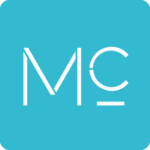“Death will be a great relief. No more interviews,” so said the late great Hollywood leading lady, Katherine Hepburn.
Fortunately, interviews don’t have to be a matter of life or death. Though, admittedly, they can be strangely painful for both sides.
Face-to-face interviews are a test of nerves and wit, of preparation, manner, and often even sense of style. But they are also often conducted in what can be something of a false environment. As the global expert on talent and leadership, Claudio Fernandez-Araoz, put it, “A typical job interview is a conversation between two liars”.
Everyone has an interview story. From the friend who when asked if they had brought their references with them, replied “I tried, but they couldn’t get the time off work”, to Guy Goma who turned up at the BBC for a job interview as a data cleanser and ended up live on air. Neither of them, unfortunately, got the job.
For the interviewee, arriving at the right building is a must. For the interviewer, making sure you know the name of the interviewee is also fairly important. However, let us imagine we have managed to meet these basic requirements. What top tips are there for people on either side of the table to make the process as effective, successful and (hopefully) as painless as possible?
For the interviewee
“In a word. Pleasure. My pleasure is other people’s leisure.” – Spud (Trainspotting)
First for the obvious.
Arrive on time, earlier is better, though not too early. It’s not a good look to be sitting in the reception for two hours with a crazed grin on your face. First impressions are also important, this means get your clothes right. To get the right tone of formality, mirroring is a good rule of thumb. If people are in suits on their website, then opt for that, though it should go without saying you shouldn’t turn up to an EasyJet interview already wearing an orange cravat.
Do your research.
Find out as much as you can about the business, the markets it operates in and perhaps review the most recent financial report if it’s available. Visit their website at the very least, it’s no good preparing answers about how much you’re a team player if you’re going for a job as a lighthouse keeper.
Equally important is researching the interviewer themselves, if you can find any information online or on LinkedIn. They will appreciate your attention to detail, but just don’t casually drop in the name of their cat.
Make a good impression.
A good handshake is important, firm but loose, don’t crush their hand. Try and relax and build a rapport, small talk is good for the first few minutes. Make sure you smile and look happy to be there, even if you desperately just want to run away. Don’t be afraid of silence, though there can be cultural differences at play there. In the UK, silence can sometimes be seen as uncomfortable, but it may be a test from the interviewer to see if you can handle it without blurting out the first thing that crosses your mind.
Listen and respond.
Once the interview begins in earnest, pick up on the cues the interviewer is giving off. Try and match their language and try to be as authentic as possible. Give real examples to back up your points, make sure you have a few of these prepared that could cover some of your best qualities. Although sometimes an unexpected answer can impress. One woman, when asked “Why should we hire you?” responded “No idea, you tell me why you want me.” The interviewers were so impressed by her confidence that she got the job.
Keep it light.
If you are asked a negative question, try and turn this into a positive. Pausing for a moment is also good when you are thinking of something to say, it looks like you are considering the question and makes you look thoughtful and considered.
Think on your feet.
Quick thinking can impress your potential employers. One young graduate went through sixteen rounds of interviews for Goldman Sachs, repeatedly referring to them as ‘Goldburg’s’. The interviewees really liked him but couldn’t believe he kept making the same error. In the final meeting he was asked why he kept getting the name of the bank wrong and realising his error, to his horror, he said, quick as a flash… “Ah yes, forgive me. I am assuming you will acquire your competitor Warburg and change the name post acquisition.” He was hired the same day.
Think about what will linger (in a good way).
Finally, prepare for the impression you want them to have once you’ve left. We all have things we are good at. David Gilmour of Pink Floyd once said, “Verbal articulation isn’t my strongest communication strength. My wife thinks that I should do interviews by listening to the questions and playing the answer on guitar”. Though I suggest if you aren’t David Gilmour, probably best not to try this yourself.
Emphasise your special qualities, whether it be building a website, selling, solving problems or communicating, and think about the last thing you say. Try not to do what this woman did…
“Halfway through the interview, I managed to get my thumb ring stuck in my necklace and had to sit through the rest of the interview with my hand stuck to my neck. It wasn’t too bad until the end when one of the interviewers tried to shake my hand.”
For the interviewer
A recruiter asks a job candidate: “How long were you in your last position?”
The job applicant replies: “I’d say my biggest weakness is my listening skills.” – Anonymous
Also do your research.
As much as the interviewee needs to be prepared, the same is true for the interviewer. Actually read the person’s CV, know who you are talking to, know a bit about them and why they have applied.
Prepare for the worst, hope for the best.
Have a list of questions prepared, more than you need in case they are not much of a talker. Try and make the questions interesting too – there’s nothing more soul sapping for the interviewee than a boring question and answer session that runs over the same tired questions. You probably won’t find out much from just saying “tell me about yourself” or “what are your strengths?”. It doesn’t have to be ‘Men in Black’, but at least keep it lively.
Don’t forget the chit chat.
Make the person comfortable, do what you can to make them feel at ease, and allow them to build rapport with you. As much as it can feel like a waste of the first few minutes, small talk is quite important. Firstly, the interviewee is probably nervous, and this may help them to compose themselves, but it can also give you an insight into their character outside the rigid nature of questions focusing solely on the job or their experience.
Interviewer: “Tell us a little something about yourself…”
Candidate: “I’d rather not, I really want this job.”
Look busy.
Active listening and taking notes helps to fuel the impression that what the interviewer is saying is important and has value, even if it is neither. Just don’t let them see the doodles when their answers get boring.
Try to keep it interesting.
Sometimes it’s good to see how the interviewee will react to unexpected situation. One interviewer from the 1990s would cut people’s ties in half to gauge their reaction and see if they could handle pressure. A great idea, until one day an interviewee broke his nose, making it very clear the tie was his recently deceased father’s favourite.
Tell them where they went wrong.
After the interview is done, providing feedback is always important. We have all been on the other side and know how it feels to be turned down for a job. It is key to let them know how they can do better next time, just maybe keep it to one or two points if the list becomes uncomfortably long.
In the end, make sure on both sides that you give a good, honest impression of who you are, what you want, and figure out whether as employer and employee you would be a good match. Because an interview may be brief, but the job could (hopefully) last a lifetime.



